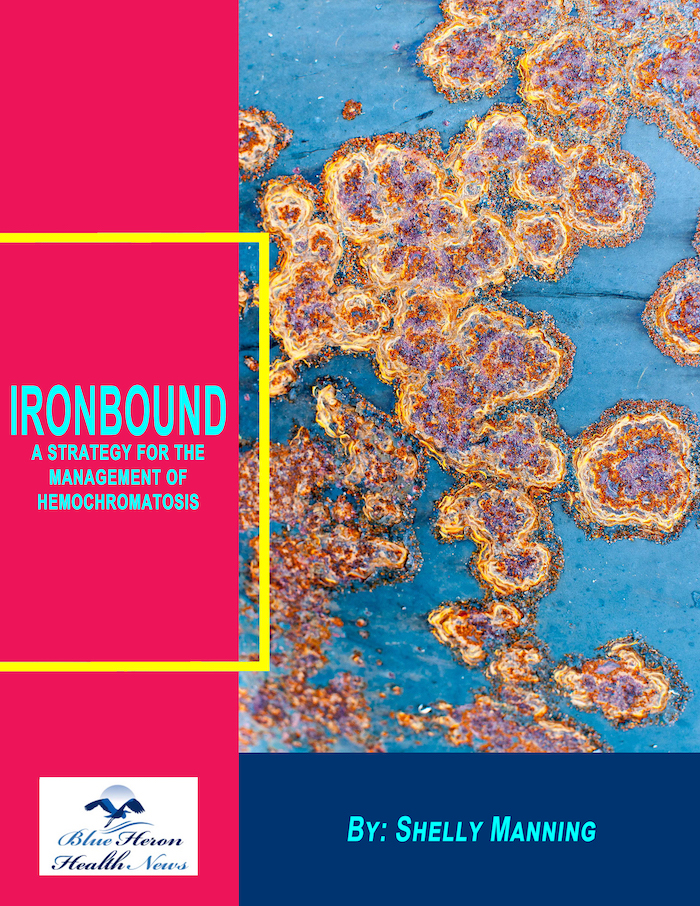
Ironbound™ A Strategy For The Management Of Hemochromatosis by Shelly Manning if you are suffering from the problems caused by the health condition of HCT due to excess amount of iron in your body then instead of using harmful chemical-based drugs and medications you are recommended to follow the program offered in Ironbound Shelly Manning, an eBook. In this eBook, she has discussed 5 superfoods and other methods to help you in reducing the level of iron in your body in a natural manner. Many people are benefited from this program after following it consistently.
What role do gastrointestinal disorders play in iron deficiency anemia?
Gastrointestinal (GI) disorders play a significant role in the development of iron deficiency anemia due to their impact on iron absorption, chronic blood loss, and overall nutrition. Here’s a detailed look at how various GI disorders contribute to iron deficiency anemia:
1. Impaired Iron Absorption
Celiac Disease
- Mechanism: Celiac disease causes damage to the small intestine’s mucosa due to an immune reaction to gluten. This damage leads to villous atrophy, reducing the surface area available for nutrient absorption, including iron.
- Consequences: Malabsorption of iron results in decreased iron stores and, eventually, iron deficiency anemia.
Crohn’s Disease
- Mechanism: Crohn’s disease can affect any part of the GI tract but commonly involves the small intestine, where iron absorption occurs. Inflammation and ulceration in the intestinal lining impair iron absorption.
- Consequences: Chronic inflammation and frequent surgeries can further reduce the absorptive surface, exacerbating iron deficiency.
Gastric Bypass Surgery
- Mechanism: Bariatric surgery, particularly procedures like Roux-en-Y gastric bypass, significantly reduces the stomach’s size and alters the digestive tract. This can lead to reduced gastric acid production and bypass of the duodenum, where most iron absorption occurs.
- Consequences: Reduced iron absorption post-surgery can lead to iron deficiency if not managed with dietary adjustments or supplements.
2. Chronic Blood Loss
Peptic Ulcers
- Mechanism: Peptic ulcers in the stomach or duodenum can cause slow, chronic blood loss. This blood loss leads to a steady depletion of iron stores.
- Consequences: Persistent or recurrent ulcers, often associated with H. pylori infection or NSAID use, can result in significant iron loss over time, leading to anemia.
Inflammatory Bowel Disease (IBD)
- Mechanism: Both Crohn’s disease and ulcerative colitis can cause chronic intestinal bleeding. Additionally, the inflammation can increase hepcidin levels, a hormone that inhibits iron absorption.
- Consequences: The combination of blood loss and impaired absorption can lead to severe iron deficiency anemia.
Colorectal Cancer
- Mechanism: Colorectal tumors can cause occult bleeding (hidden blood loss), which is often slow and unnoticed but chronic.
- Consequences: Over time, this can lead to significant iron loss and anemia, sometimes being the first sign of the malignancy.
3. Reduced Dietary Iron Intake
Anorexia and Poor Appetite
- Mechanism: GI disorders often cause symptoms like nausea, pain, and early satiety, leading to reduced food intake.
- Consequences: A decrease in dietary iron intake exacerbates the risk of developing iron deficiency anemia, especially if the diet is already low in iron-rich foods.
4. Additional Contributing Factors
Medications
- Mechanism: Certain medications used to treat GI disorders, such as proton pump inhibitors (PPIs) and H2 blockers, reduce stomach acid production. Stomach acid is essential for converting dietary iron to its absorbable form.
- Consequences: Long-term use of these medications can impair iron absorption and contribute to iron deficiency anemia.
Infections and Inflammation
- Mechanism: Chronic infections and inflammation associated with GI disorders can increase hepcidin levels. Hepcidin regulates iron metabolism by inhibiting iron absorption and trapping iron in macrophages.
- Consequences: Elevated hepcidin levels reduce the availability of iron for red blood cell production, contributing to anemia.
Management and Treatment
Diagnosis
- Blood Tests: Blood tests, including complete blood count (CBC), serum ferritin, serum iron, and total iron-binding capacity (TIBC), are essential for diagnosing iron deficiency anemia.
- Endoscopic Procedures: Endoscopy and colonoscopy can help identify sources of chronic blood loss or inflammation in the GI tract.
Treatment
- Iron Supplementation: Oral or intravenous iron supplements may be necessary, depending on the severity of the deficiency and the patient’s ability to absorb iron.
- Dietary Adjustments: Increasing intake of iron-rich foods and foods that enhance iron absorption (such as those high in vitamin C) can help.
- Addressing Underlying Conditions: Treating the underlying GI disorder is crucial. This may involve medications to control inflammation, eradicate infections (e.g., H. pylori), or surgical interventions.
- Monitoring: Regular monitoring of iron levels and hemoglobin is important, especially in patients with chronic GI disorders, to prevent recurrence of iron deficiency anemia.
Conclusion
Gastrointestinal disorders can significantly contribute to iron deficiency anemia through mechanisms like impaired iron absorption, chronic blood loss, reduced dietary intake, and inflammatory processes. Effective management requires a comprehensive approach that includes diagnosing and treating the underlying GI condition, ensuring adequate iron intake, and monitoring iron levels to prevent recurrence.
Ironbound™ A Strategy For The Management Of Hemochromatosis by Shelly Manning if you are suffering from the problems caused by the health condition of HCT due to excess amount of iron in your body then instead of using harmful chemical-based drugs and medications you are recommended to follow the program offered in Ironbound Shelly Manning, an eBook. In this eBook, she has discussed 5 superfoods and other methods to help you in reducing the level of iron in your body in a natural manner. Many people are benefited from this program after following it consistently.